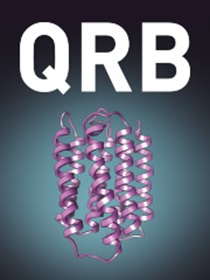蛋白质点击化学及其医疗应用潜力
IF 7.2
2区 生物学
Q1 BIOPHYSICS
引用次数: 0
摘要
随着点击化学的问世,化学生物学发生了一场革命。点击化学在蛋白质化学修饰中发挥着重要作用,提供了特异、灵敏、快速和易于操作的方法。在生理条件下,点击化学往往与生物正交化学重叠,生物正交化学的定义是反应快速、选择性地发生而不干扰生物过程。点击化学用于基于共价键形成的蛋白质翻译后修饰。有了点击反应的贡献,蛋白质的选择性修饰将得到发展,成为制备新蛋白质或酶的替代技术,用于研究不同生物过程中特定蛋白质的功能。点击修饰的蛋白质具有成像、标记、传感、药物设计和酶技术等多种应用潜力。由于蛋白质在疾病诊断和治疗中的作用前景广阔,本综述旨在重点介绍过去二十年来点击策略在蛋白质化学中不断增长的应用,并特别强调其在医药方面的应用。本文章由计算机程序翻译,如有差异,请以英文原文为准。
Protein click chemistry and its potential for medical applications
A revolution in chemical biology occurred with the introduction of click chemistry. Click chemistry plays an important role in protein chemistry modifications, providing specific, sensitive, rapid, and easy-to-handle methods. Under physiological conditions, click chemistry often overlaps with bioorthogonal chemistry, defined as reactions that occur rapidly and selectively without interfering with biological processes. Click chemistry is used for the posttranslational modification of proteins based on covalent bond formations. With the contribution of click reactions, selective modification of proteins would be developed, representing an alternative to other technologies in preparing new proteins or enzymes for studying specific protein functions in different biological processes. Click-modified proteins have potential in diverse applications such as imaging, labeling, sensing, drug design, and enzyme technology. Due to the promising role of proteins in disease diagnosis and therapy, this review aims to highlight the growing applications of click strategies in protein chemistry over the last two decades, with a special emphasis on medicinal applications.
求助全文
通过发布文献求助,成功后即可免费获取论文全文。
去求助
来源期刊

Quarterly Reviews of Biophysics
生物-生物物理
CiteScore
12.90
自引率
1.60%
发文量
16
期刊介绍:
Quarterly Reviews of Biophysics covers the field of experimental and computational biophysics. Experimental biophysics span across different physics-based measurements such as optical microscopy, super-resolution imaging, electron microscopy, X-ray and neutron diffraction, spectroscopy, calorimetry, thermodynamics and their integrated uses. Computational biophysics includes theory, simulations, bioinformatics and system analysis. These biophysical methodologies are used to discover the structure, function and physiology of biological systems in varying complexities from cells, organelles, membranes, protein-nucleic acid complexes, molecular machines to molecules. The majority of reviews published are invited from authors who have made significant contributions to the field, who give critical, readable and sometimes controversial accounts of recent progress and problems in their specialty. The journal has long-standing, worldwide reputation, demonstrated by its high ranking in the ISI Science Citation Index, as a forum for general and specialized communication between biophysicists working in different areas. Thematic issues are occasionally published.
 求助内容:
求助内容: 应助结果提醒方式:
应助结果提醒方式:


